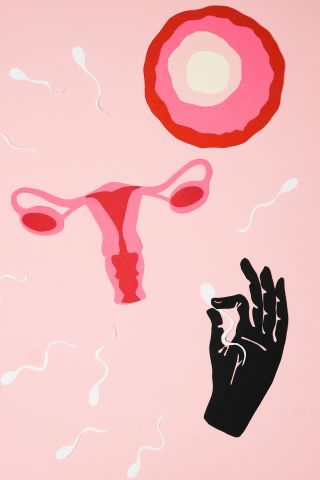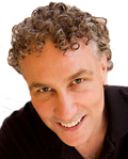Genetics
I Was Conceived by Donor Insemination When It Was Illegal
Personal Perspective: My parents were married, but I was a bastard by law.
Posted May 3, 2023 Reviewed by Vanessa Lancaster

My life began as a lie. Perhaps my parents thought of it as an innocent lie and that no one could be hurt by it. Maybe my father considered it a white lie which he told me was okay to tell because those were lies you told when you didn’t want to hurt someone’s feelings.
My parents assumed that no one would ever find out about their little white lie; then decades after their deaths, along came DNA testing for genealogy. On May 18, 2022, when I was 65 years old, I got the shock of my life: I learned I was not related to my father.
It happened as I was telling my cousin (on my father’s side) about a new feature offered by Ancestry.com that uses your DNA to individually isolate each of your parents by ethnicity. If you know your parent's ethnic background (which I thought I did), you can identify which parent is which. It also enables you to tell which parent's side of your family your DNA matches are on.
My cousin sent me the Ancestry.com graph that separated her parents by ethnic percentages and asked, “Can you tell me which one is Dad?” When I looked at it, I was baffled. Neither of her parents matched either of mine, but our fathers should have. When I told her that, she suggested that I look at another cousin’s profile on Ancestry, who is also on my father’s side of the family. When I pulled up that profile, it read: “You are not a DNA match for this person.”
That didn't make sense to me, so I pulled up the profile of the cousin to whom I was talking; it said the same thing. I was thunderstruck and didn’t know what to think, so I did an online search: “Ancestry DNA says I’m not related to my first cousin. What does that mean?” The response I got was: “Ancestry DNA is 99 percent accurate. If it says you’re not related to your cousin, then you are not related to your cousin.”
I made the stunning realization: “If I’m not related to my cousins, then I’m probably not related to Dad.”
Who Is My Father?
I said this to my cousin, who replied, “Maybe you were adopted.”
“I can’t be adopted because I’m seeing DNA matches on Ancestry from my mother’s side of the family.”
She asked, “Do you think your mother cheated on your dad?”
My mother certainly lacked scruples in some areas of her life, but I could not imagine she would cheat on Dad, so I replied, “I really don’t think so.”
When I got off the phone, I was shaken and confused. I imagined all the possibilities that I could think of in my head, but no answers were forthcoming. Eventually, my consternation diminished but turned into depression. I kept thinking, how can this be? Why didn’t anyone tell me? Unfortunately, everyone I could think of to ask was dead. Intellectually I could understand that this didn’t really change anything about my life, but emotionally it was an earthquake. I couldn’t stop thinking about it. It was a mystery, and while I like to solve mysteries, I wasn’t sure about this one. By evening the sadness was getting to me, and I did something I never do: I made myself a strong drink, and then another.
The next morning I recalled that my father contracted TB during World War II fighting on Okinawa. In 1951, he spent a year in a tuberculosis hospital receiving intravenous chemo-therapy comprised of a potent three-drug cocktail. Those powerful drugs eventually destroyed his kidneys requiring him to have a kidney transplant 10 years later. I wondered if those drugs also sterilized him. I went online to do some research and learned that the TB drugs used in the 1950s did render some men infertile.
I concluded that my parents discovered that Dad was infertile but still wanted children. Yet, for some reason, they did not choose adoption, instead, they must have opted for artificial insemination with a sperm donor.
The next thing I wanted to know was: “Who is my biological father?”
Finding My Sperm Donor
I went back to Ancestry.com and found the 12 closest relatives by DNA percentage on my biological father’s side and wrote to each of them and explained what I’d learned and what I wanted to find out. Of the 12, only one wrote back, but it was all I needed. My second cousin, once removed, sent me a detailed family tree and told me where to look based on the other family names to which we were both matched. I eventually found out that my biological father was an OB/GYN doctor who specialized in fertility; he passed away more than a decade ago, so getting to meet him was out.
A few days later I remembered one of my mother's best friends who is still living, so I phoned her. After a few minutes of chit-chat, I told her I’d learned that I wasn’t related to my father. Now usually, when I tell someone that, the reaction I get is, “Oh my god!” Instead, my mother's friend replied, “How did you find out?” With those words, I knew I was on the right track.
I told her everything I’d learned, and she replied, “Okay I can confirm all of that to be true; your father was sterile, and your mother conceived by artificial insemination, but she did not know the donor." She added, "Your mother made me promise never to tell you, but you’ve already figured it out, she's been dead for 30 years, and I believe that people should know the truth so that they can live their most authentic lives.”
Donor Conception Was Unmentionable
When donor conception started to become obtainable after World War II, it was deeply frowned upon by society, and parents were told to tell no one. Donor-conceived children were considered illegitimate in all U.S. states. The legal father was the donor, and it did not matter that the parents were married. The only way to make it legal was for the donor to sign away all rights to the child and for the husband to adopt the child formally. Instead of following the legal procedures, most husbands simply put their name on the birth certificate as the father; this was done to avoid any stigma, and the doctor, mother, and husband kept the secret for life.
Legally I was considered a bastard, which remained true until I was seven years old when, in 1964, my home state of Georgia became the first state in the union to recognize donor-conceived children as legitimate. Six decades later, the world is a different place, and donors of sperm and ovum can no longer expect anonymity.
It’s been a year, and I still think about my discovery frequently. Much of what I've always believed to be true is now false. I’ve suffered an identity crisis. It has kept me awake and unable to sleep many nights. Which of my characteristics are nurture, and which ones are nature? Clearly, the values I live by began with the parents who raised me, but what strengths and weaknesses do I possess that came to me genetically? It seems that I’m still trying to process it. I feel bisected: there’s the life I've lived and that I might’ve lived had I been raised by my two biological parents.
Genealogy has been a hobby of mine for decades, and for 65 years, I thought I knew my family tree, but overnight an entire half disappeared and was replaced by another. I have relatives I've never met and ancestors I know nothing about. I’m still close and will remain close to all my cousins, but the thought is constantly in my mind that I’m not related to them which makes me sad.
Resolving My Identity Crisis
I’m left with many questions; some are about the health and genetics of my biological father, but others are about the motivations and feelings of my parents as they chose donor insemination. I wonder if my parents had lived until DNA testing entered the mainstream, would they have told me about my conception? I wonder how they found out about donor insemination when it was taboo. And I wonder if Dad treated me differently than he would have if I were his actual progeny. Nevertheless, I admire my parents for being willing to go against the status quo in order to have children. It tells me where I got my curiosity and willingness to question authority, which have been important components of my creative life.
In the meantime, I wonder when I'll stop obsessing about who I am and whether or not I'll ever have a relationship with my half-siblings on my biological father’s side.




